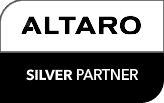Finish company Enifer is bringing back a protein made from fungus (a microprotein) that was first developed and used in the 1970s for animal feed but could now work as a sustainable protein source for the human diet.
Pekilo ®
Enifer’s Pekilo ® microprotein was developed from fungus in the 70s and used for fifteen years in farming as fodder before being forgotten after the general biorefining focus at the time shifted to waste-water treatment, and the engineering company that developed it also went bankrupt.
Fast forward to 2020 and thanks to the memory of one of the original R&D workers, and the rediscovery of an R&D project, startup Enifer was formed out of the VTT Technical Research Centre of Finland with five co-founders, Simo Ellilä being the CEO.
Factory Funding
Enifer has now secured €33 million of Series B funding for the world’s first commercial factory to produce the mycoprotein ingredient from the food industry side stream raw materials at Kirkkonummi, Finland.
What Is Pekilo® And What’s So Good About It?
Pekilo® is a single-cell protein (SCP) produced through a fermentation process using the biomass of fungi. It is produced from industrial side streams (i.e. waste products from other industries) such as lactose from the dairy industry and lignocellulosic hydrolysates (by-products of processes such as wood and paper production).
Pekilo® has many advantages, such as:
– It offers sustainable production. Being produced from industrial side streams means it’s a sustainable and environmentally friendly source of protein. For example, the process utilises waste materials, reducing overall waste and promoting circular economy principles.
– Pekilo® has a high protein content, typically ranging between 60-70 per cent. This makes it an excellent source of protein for both human consumption or animal feed. Enifer says, for example, it’s “an ideal drop-in ingredient for aquafeed, pet food, and food production”.
– In addition to the high protein content, Pekilo® also has a generally high nutritional value. For example, it contains essential amino acids, vitamins, and minerals necessary for animal growth and health, which is why it is a comprehensive dietary supplement/drop-in ingredient.
– Pekilo® has a lower environmental impact compared twith traditional protein sources like soy or fishmeal. It also requires less land and water and generates lower greenhouse gas emissions.
– The product can be manufactured to have consistent quality in terms of protein content and nutritional profile, which is crucial for feed formulation and ensures reliable nutrition for livestock.
– The fermentation process for producing Pekilo® is relatively fast, meaning this can facilitate rapid production and scalability. This can meet the growing world demand for protein in a sustainable manner.
– It’s antibiotic-free, which means a reduced risk of antibiotic resistance and a cleaner product for animal feed.
– Pekilo® is economically viable because it utilises industrial by-products for its production. This can lower feed costs, enhance economic viability for producers, and make it an attractive alternative to conventional protein sources.
– The fact that it can be used in various feed applications, including aquaculture, poultry, and pigs, makes it a very versatile and flexible component in animal nutrition.
– Pekilo® has long shelf life due to its drying process, which removes moisture and prevents spoilage. Proper packaging and storage in cool, dry conditions further preserve its nutritional value, making it a reliable and stable feed ingredient over extended periods.
– Its neutral flavour (the food grade version) means it’s suitable for a wide range of human foods, Savoury or sweet. Although currently the feed-grade version apparently has a distinctive taste, Enifer is working on making the flavour more neutral. This means it will be more versatile in feed formulations, more acceptable to various animal species and will ensure better feed intake.
Regulatory Clearance Needed First
Although the product sounds very promising, the food-grade human version will first need to get regulatory clearance as a novel food before being added to any foods for human consumption. It’s understood that Enifer has so far applied to regulators in the EU, with plans to target Singapore and the US next.
What Does This Mean For Your Organisation?
The introduction of Enifer’s Pekilo® could be a significant advancement in sustainable protein production. For example, it could offer substantial benefits for UK businesses looking to align with environmental goals and meet growing global protein demand. Using industrial side streams to produce this microprotein not only reduces waste but also promotes a circular economy, making it an eco-friendly choice that could revolutionise the protein industry.
For companies in the food and feed sectors, Pekilo® offers a high-protein, nutritionally rich ingredient that can enhance the quality of animal feed while significantly lowering the environmental impact compared to traditional protein sources like soy and fishmeal. Its consistent quality and rapid production capabilities mean it could reliably meet the increasing demand for protein in a scalable and sustainable manner.
Also, Pekilo®’s long shelf life and neutral flavour mean it could be a versatile ingredient for various applications, including aquaculture, poultry, pig food, and potentially human foods. As consumer awareness and demand for sustainable and plant-based proteins grow, incorporating Pekilo® into product lines could help food businesses to position themselves at the forefront of this market shift. It could also help facilitate the transition towards more plant-based diets, thereby reducing reliance on meat and the associated environmental footprint.
Although regulatory clearance is still required for human consumption, the prospects for Pekilo® seem promising. As Enifer progresses through the necessary approvals, early adoption and integration of this sustainable protein source may offer a competitive edge. Businesses that embrace Pekilo® may not only contribute to environmental sustainability but also appeal to a growing segment of eco-conscious consumers, ultimately driving long-term growth and success in a rapidly evolving market.
By integrating Pekilo® into business operations, food-based businesses may not only investing in a sustainable future but may also help address the urgent need for environmentally friendly protein alternatives. In addition to enhancing a brand’s reputation, incorporating this or similar ingredients could be a way for food businesses to meet consumer demand for sustainable products, and play a crucial role in the global shift towards a more sustainable food system.




